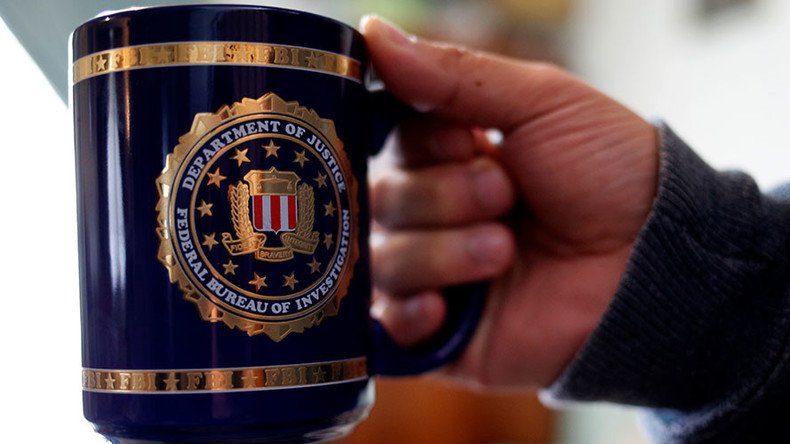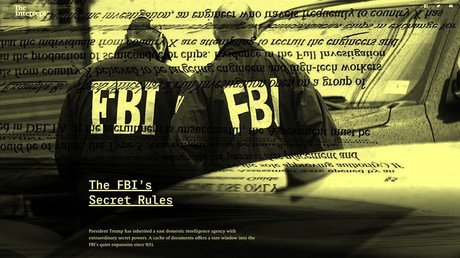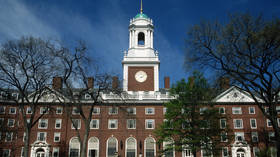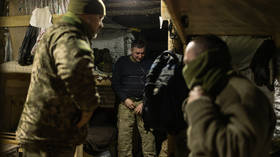FBI not obligated to share rules for spying on journalists, judge rules

A federal judge has ruled that not only is it okay for the FBI to spy on journalists, but that it can withhold information about its rules for snooping on reporters without a warrant.
The Freedom of the Press Foundation (FPF) sued the Department of Justice in July 2015, two years after the Associated Press reported that the DOJ had seized two months’ worth of phone records of at least seven journalists ‒ and possibly more than 100 ‒ in an attempt to discover the source of a leak about a CIA operation that foiled a terror plot in Yemen.
As part of its probe, the DOJ investigated James Rosen, the chief Washington correspondent for Fox News, as a possible “co-conspirator” in the leak of classified material. After AP reported that the DOJ secretly pursued a warrant to monitor the communications of the news wire’s staff, AP President Gary Pruitt claimed that anonymous sources retreated into silence, afraid that they would become a target of a government leak investigation.
The backlash forced the DOJ to release guidelines meant to bar the government from issuing subpoenas to journalists unless certain high standards were met. However, those guidelines, published in July 2013, they did not prevent FBI agents from using national security letters (NSLs), which only require the approval of the FBI’s general counsel and the executive assistant director of the bureau’s National Security Branch, to gain a journalist's phone and internet records. Such NSLs come with a gag order barring the service provider from discussing the letters approximately 97 percent of the time, according to Courthouse News.
The rules for the use of NSLs were governed by Classified Appendix G, which were neither made public nor mentioned by the FBI in the list of documents it was withholding from the FPF’s FOIA request. They were revealed thanks to a leak to the Intercept in 2016. The organization argued in court documents that keeping that information secret was chilling the press and its sources.
“Guidelines to protect the press and bolster their right to report on issues of public matters are not there,” FPF attorney Marcia Hofmann told US District Judge Haywood Gilliam Jr. at a hearing last August. “The government doesn’t want to disclose that because that’s embarrassing to them.”
Gilliam disagreed with that assessment in his ruling, however, noting that the FBI "described with particularity that the withheld documents all contained non-public information about the FBI's investigative techniques and procedures. These pages not only identified NSLs as an investigative technique but also described information such as the circumstances under which the techniques should be used, how to analyze the information gathered through these techniques, and the current focus of the FBI's investigations."
Just because the FBI didn’t include Appendix G in the list of documents in its FOIA response did not mean that its search was insufficient.
“While the FBI’s search may not have been perfect, plaintiff was ‘entitled to a reasonable search for records, not a perfect one,’” he wrote, quoting the 9th Circuit’s 2015 ruling in Hamdan v. DOJ.
Attorney General Holder personally approved warrant to search Fox News reporter's emails http://t.co/qeOeIKFRNG
— RT America (@RT_America) May 24, 2013
The ruling means that reporters won’t have access to any updated guidelines on the use of NSLs beyond what was revealed by the Intercept leaks, which FPF Executive Director Trevor Timm described as “antithetical to a democracy that supposedly values a free press.”
"This is an extremely disappointing decision. Whether it's the Obama administration or the Trump administration, the government should not be able to keep its rules for spying on journalists without a court order secret,” Timm said in a statement. “It is antithetical to a democracy that supposedly values a free press. We are evaluating our options and will announce whether we will appeal the case soon."
Under the 1966 Freedom of Information Act, individuals can request copies of federal records for free or at a nominal cost. The government is obligated to hand them over, unless the disclosure could harm national security, violate personal privacy, or expose confidential decision-making – exemptions that authorities often abuse, according to critics.














